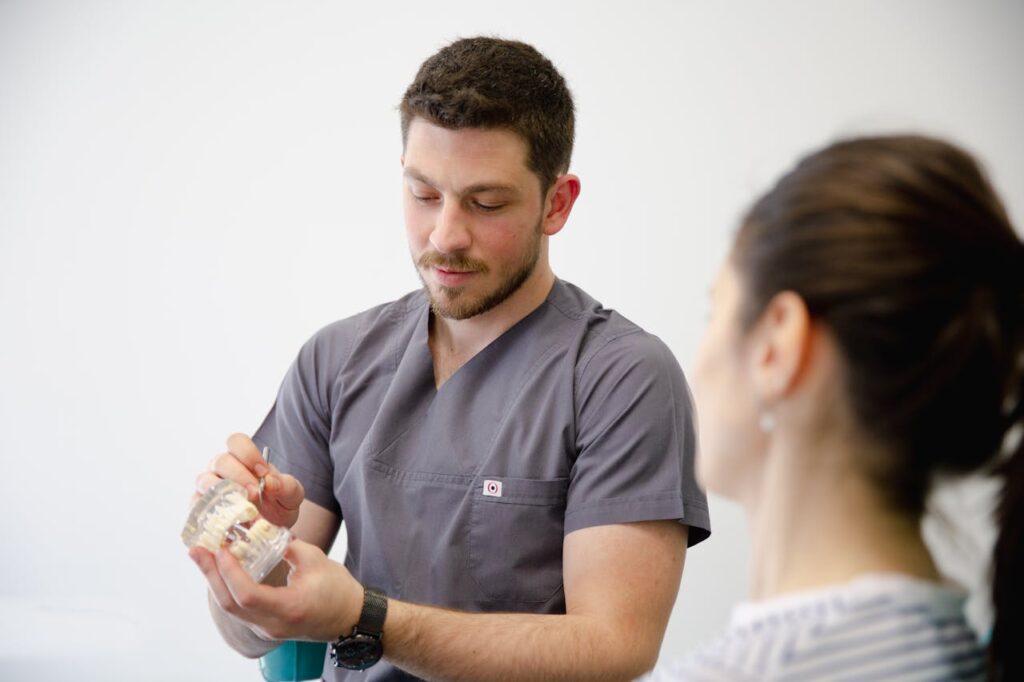Living a healthy lifestyle involves incorporating habits that promote physical, mental, and emotional well-being. Here are 101 healthy habits organized into categories to help you boost your health and vitality:
Hydration

- Drink water first thing in the morning to hydrate your body.
- Carry a water bottle to stay hydrated throughout the day.
- Add lemon to your water for extra flavor and vitamin C.
- Drink herbal teas for relaxation and hydration.
- Monitor your water intake to ensure you’re drinking enough.
Nutrition

- Eat a balanced breakfast to kickstart your metabolism.
- Include vegetables in every meal for fiber and nutrients.
- Eat plenty of fruits for essential vitamins and antioxidants.
- Incorporate whole grains into your diet for sustained energy.
- Limit processed foods to reduce unhealthy additives.
- Practice portion control to avoid overeating.
- Cook at home to control ingredients and portions.
- Limit sugary drinks to prevent excessive calorie intake.
- Use healthy fats like avocado and olive oil in cooking.
- Choose lean proteins such as chicken, fish, and legumes.
Physical Activity

- Exercise regularly to keep your body fit and strong.
- Take breaks during work to stretch and move.
- Stay active by taking the stairs instead of the elevator.
- Go for a daily walk to boost your mood and fitness.
- Engage in strength training to build muscle and improve metabolism.
- Try yoga to enhance flexibility and reduce stress.
- Participate in recreational sports for fun and fitness.
- Use a standing desk to reduce sedentary time.
- Incorporate stretching into your daily routine to improve flexibility.
- Take up a new physical activity to keep workouts interesting.
Mental Well-Being

- Practice mindfulness to reduce stress and enhance mental clarity.
- Set realistic goals to stay motivated and focused.
- Maintain a positive mindset to improve overall well-being.
- Engage in hobbies to boost mental health and creativity.
- Practice deep breathing to manage stress effectively.
- Meditate daily to calm the mind and increase focus.
- Read books to stimulate your mind and reduce stress.
- Limit screen time to avoid digital overload.
- Journal regularly to reflect on your thoughts and feelings.
- Practice gratitude by listing things you’re thankful for.
Sleep and Rest

- Get enough sleep to support overall health and energy levels.
- Maintain a consistent sleep schedule for better rest.
- Create a relaxing bedtime routine to improve sleep quality.
- Avoid caffeine close to bedtime to prevent sleep disturbances.
- Keep your bedroom dark and cool for optimal sleep conditions.
- Limit naps to avoid interfering with nighttime sleep.
- Invest in a comfortable mattress to support restful sleep.
- Practice relaxation techniques before bed to unwind.
- Limit screen time before bed to improve sleep quality.
- Get exposure to natural light during the day to regulate your sleep cycle.
Social Connections

- Connect with loved ones to strengthen social bonds.
- Join a club or group to meet new people and build relationships.
- Schedule regular catch-ups with friends and family.
- Participate in community events to engage socially.
- Offer help and support to others to build meaningful connections.
- Attend social gatherings to stay connected with your network.
- Communicate openly and honestly to maintain healthy relationships.
- Share your experiences and listen to others to strengthen connections.
- Express appreciation and affection to those you care about.
- Seek support when needed to maintain emotional health.
Self-Care and Personal Growth

- Plan meals ahead to avoid unhealthy eating choices.
- Practice self-compassion to foster a positive self-image.
- Set boundaries to maintain a healthy work-life balance.
- Learn new skills to boost confidence and personal growth.
- Prioritize self-care activities like taking baths or reading.
- Seek professional help when needed for mental health support.
- Take time for relaxation and rejuvenation to reduce stress.
- Practice good hygiene to support overall health.
- Stay organized to reduce stress and increase productivity.
- Set aside time for reflection to assess personal goals and progress.
Health Monitoring

- Schedule regular check-ups with your healthcare provider.
- Monitor your blood pressure to maintain cardiovascular health.
- Track your physical activity to stay accountable and motivated.
- Keep a food diary to track your eating habits and nutritional intake.
- Get routine screenings to catch potential health issues early.
- Practice regular dental care to maintain oral health.
- Check your posture to avoid back and neck pain.
- Monitor your weight to stay within a healthy range.
- Keep track of your mental health and seek support if needed.
- Stay informed about health and wellness trends for ongoing improvement.
Environmental Wellness

- Create a clean and organized living space to promote a healthy environment.
- Use non-toxic cleaning products to reduce exposure to harmful chemicals.
- Incorporate indoor plants to improve air quality.
- Practice recycling to support environmental sustainability.
- Reduce plastic use to minimize environmental impact.
- Maintain good ventilation in your home to ensure fresh air.
- Use natural light during the day to enhance mood and productivity.
- Keep your workspace tidy to improve focus and reduce stress.
- Limit exposure to environmental toxins like smoke or pollutants.
- Promote energy efficiency to contribute to a healthier planet.
Mindful Living

- Practice mindful eating to enjoy your meals and aid digestion.
- Focus on one task at a time to improve productivity and reduce stress.
- Engage in active listening to enhance communication and understanding.
- Be present in your daily activities to fully experience life.
- Cultivate a positive environment at home and work.
- Celebrate small victories to stay motivated and appreciative.
- Practice forgiveness to release negative emotions and foster peace.
- Engage in creative activities to express yourself and reduce stress.
- Set aside time for relaxation to recharge and unwind.
- Reflect on your day to gain insight and appreciate progress.
Personal Safety

- Practice safety measures like wearing seatbelts and helmets.
- Stay informed about health and safety guidelines in your community.
- Maintain a first aid kit for emergencies and minor injuries.
- Secure your home to ensure a safe living environment.
- Follow safety protocols in the workplace and at home.
- Stay aware of your surroundings to protect yourself in public spaces.
Incorporating these habits into your daily routine can lead to a healthier and more balanced lifestyle. Start small, gradually adding these practices to your routine, and you’ll be well on your way to a healthier you!




